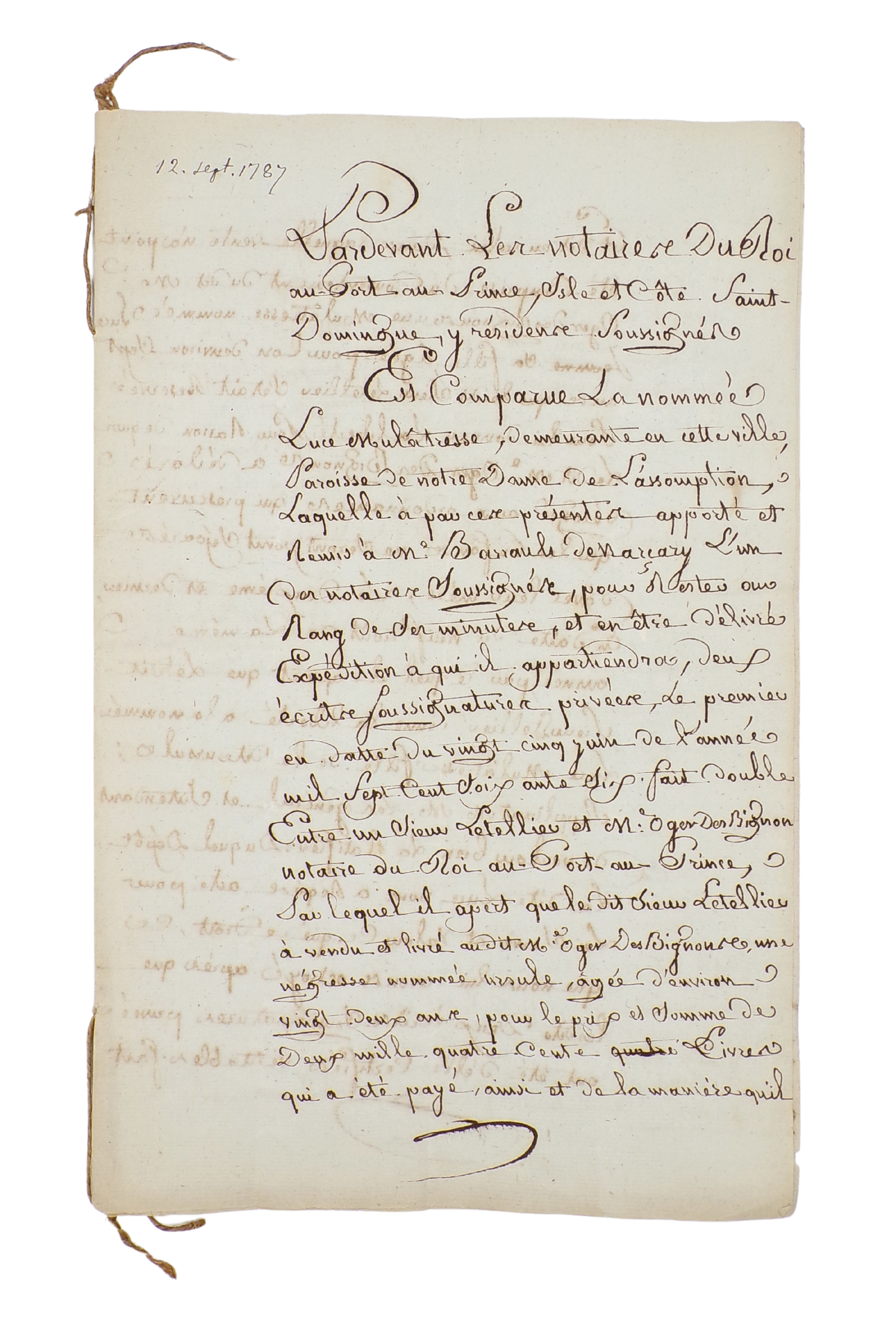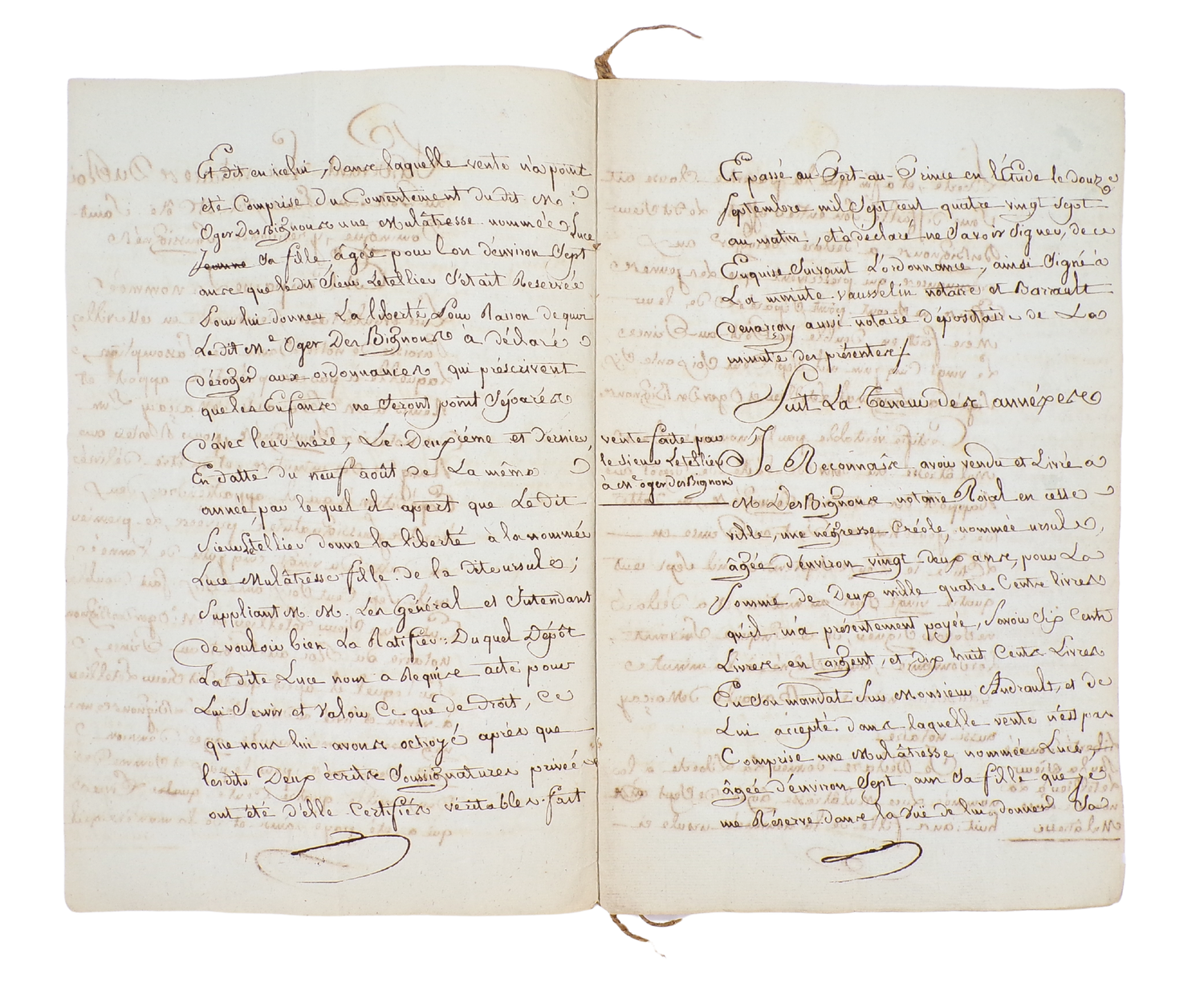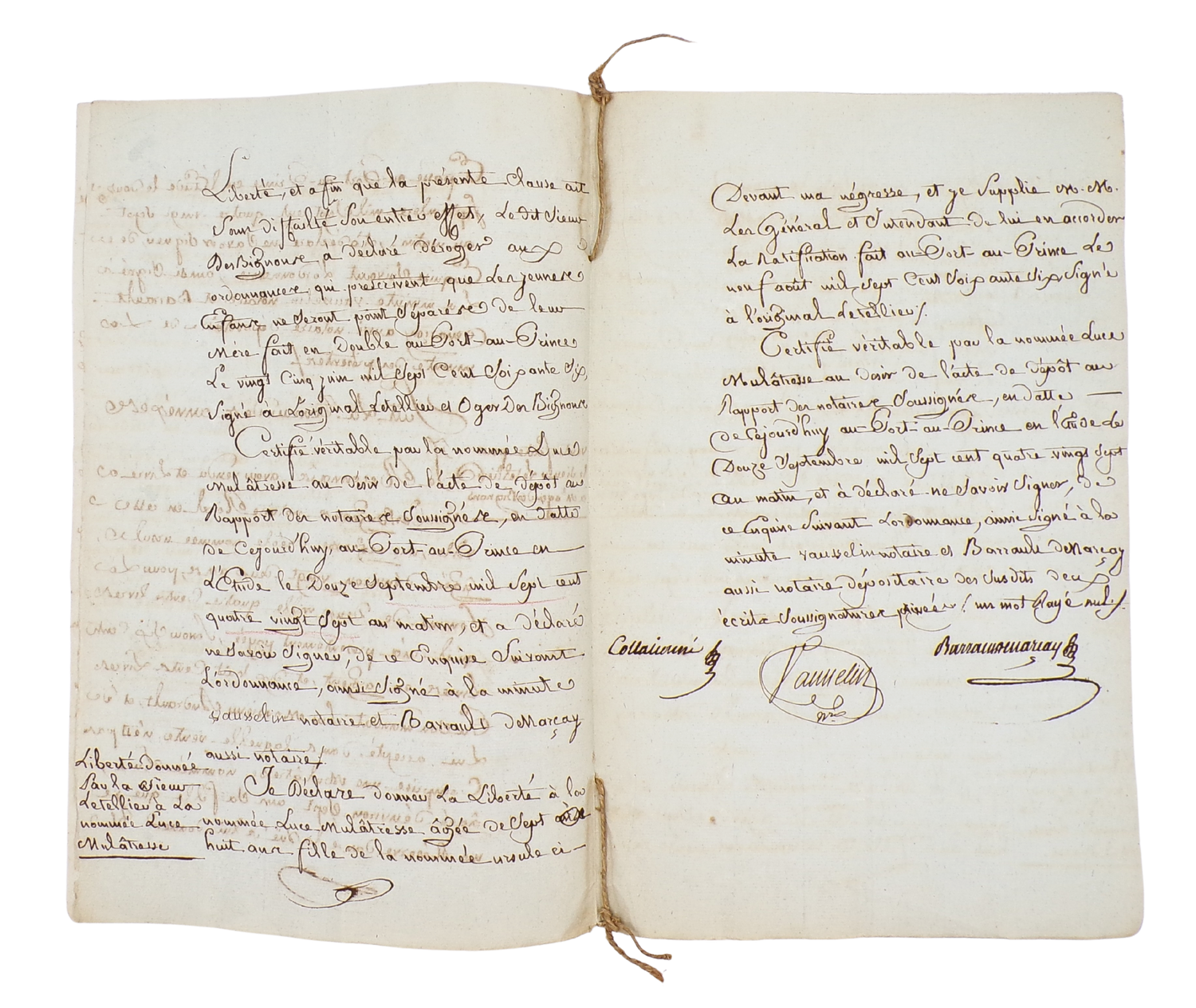A woman's fight for freedom in slavery
- Regular price
- €5.500,00 EUR
- Regular price
-
- Sale price
- €5.500,00 EUR
- Unit price
- per
The sale of an enslaved woman and the emancipation of her daughter
Luce; Vausselin & Barrault de Narçay [notaties].
[Signed manuscript legal document].
Port-au-Prince (Haiti), 12 September 1787.
Manuscript, small folio (31 x 20 cm), (5), [3 blank] pp.
Stitched.
Manuscript in French documenting the case of Luce, a free woman of colour, who appeared before notaries in Port-au-Prince in 1787 to formally register two private agreements dating from 1766, relating to the sale of her enslaved mother and her own emancipation.
In 1766, a man named Letellier sold an enslaved woman named Ursule, then around 22 years old, to Maître Oger des Bignons, a notary in Port-au-Prince, for the sum of 2,400 livres. Ursule had a young daughter, Luce, aged approximately seven, who should have been included in the transaction, as colonial law prohibited the separation of small children from their mothers. However, Letellier chose to retain Luce in order to grant her freedom, and drew up two private documents: one co-signed by Oger des Bignons, and the other signed by Letellier alone.
In 1787, now an adult and a free woman, Luce approached notaries Vausselin and Barrault de Narçay in Port-au-Prince to have both documents formally recorded. This very manuscript is offered here. It preserves the official act of the registration, and opens:
“Before the King’s notaries in Port-au-Prince […] appeared Luce, a free woman of colour residing in this city, parish of Notre-Dame de l’Assomption, who hereby submits to Maître Barrault de Narçay, one of the undersigned notaries […] two private agreements. The first […] confirms that Sieur Letellier sold and delivered to Maître Oger des Bignons a Black woman named Ursule, aged about twenty-two years, for the sum of 2,400 livres […]. The second […] confirms that Sieur Letellier grants freedom to Luce, a mulatto girl, daughter of the said Ursule…” (pp. 1–2).
The manuscript includes a full transcription of the original 1766 documents, offering a rare insight into the legal structures of slavery, the regulation of family ties, and the processes of manumission in colonial Saint-Domingue. It reveals the limited legal pathways by which individuals — particularly women — could seek recognition and freedom.
Condition: in very good condition.
Couldn't load pickup availability
Share
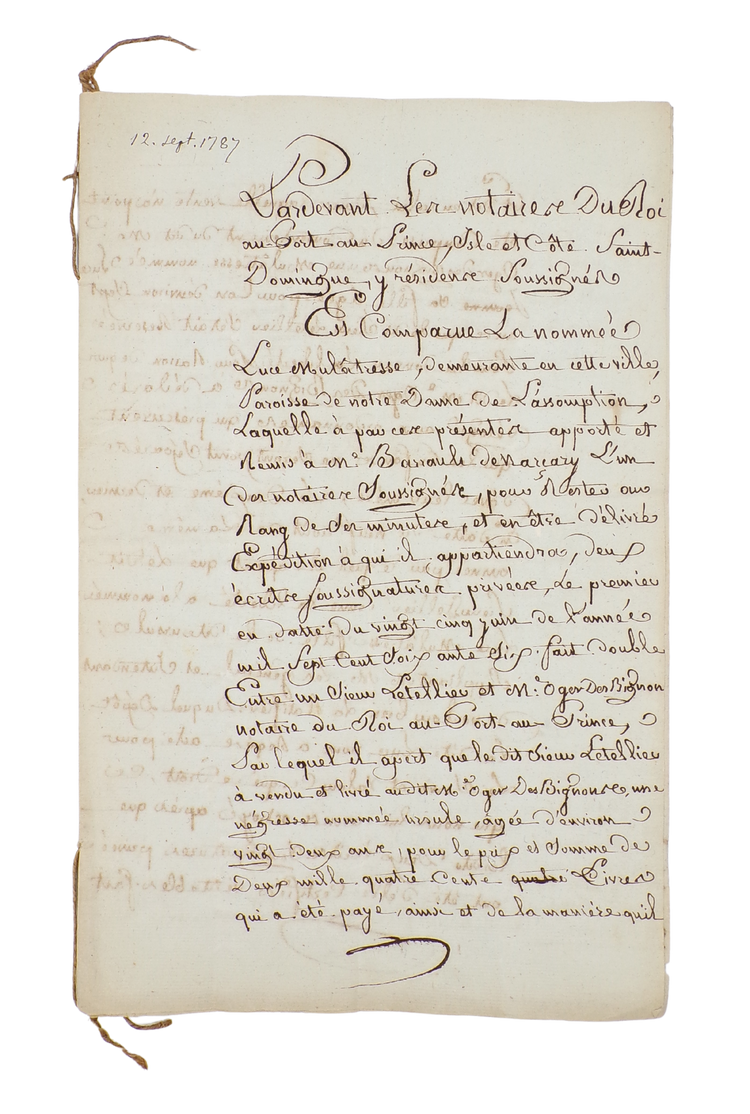
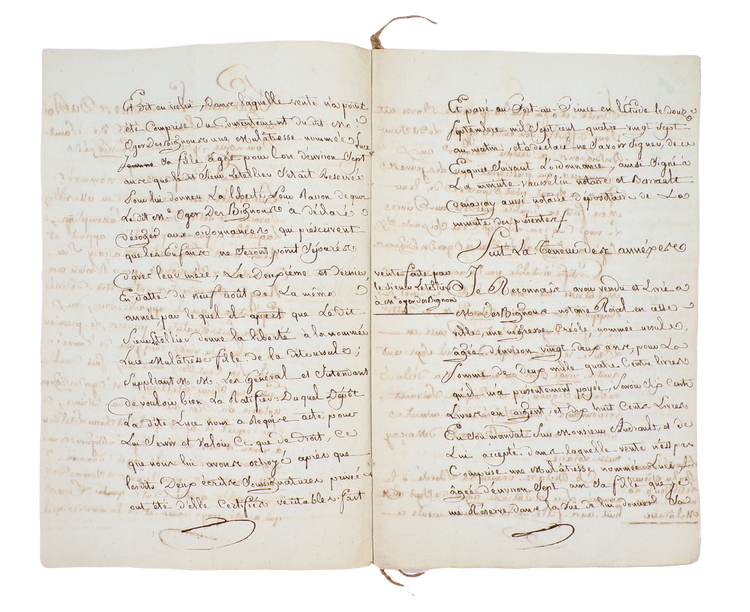
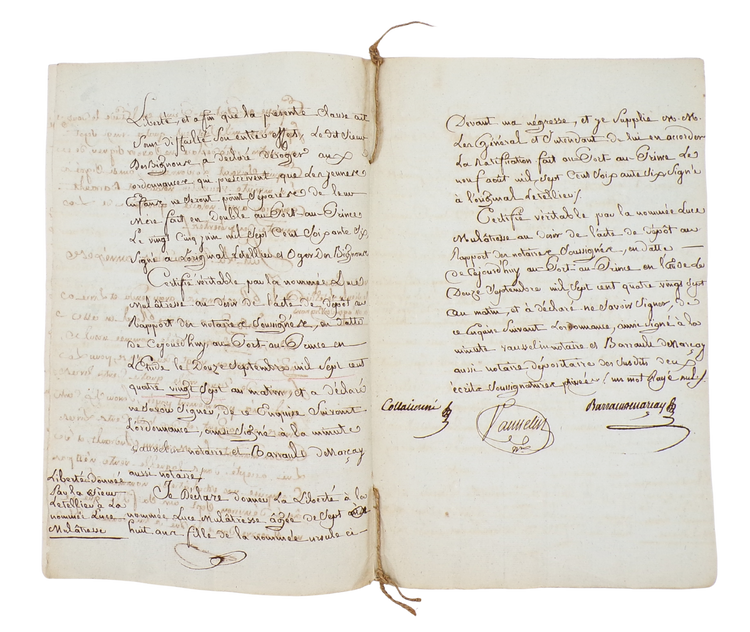
Contact
Email: hugo@artemrarebooks.com
Phone: +31651042297
Visit us on appointment at:
Former US Embassy
Lange Voorhout 102
2514EJ
The Hague (The Netherlands)
Shipping address:
Nannie van Wehlstraat 51
2548MN
The Hague
The Netherlands

